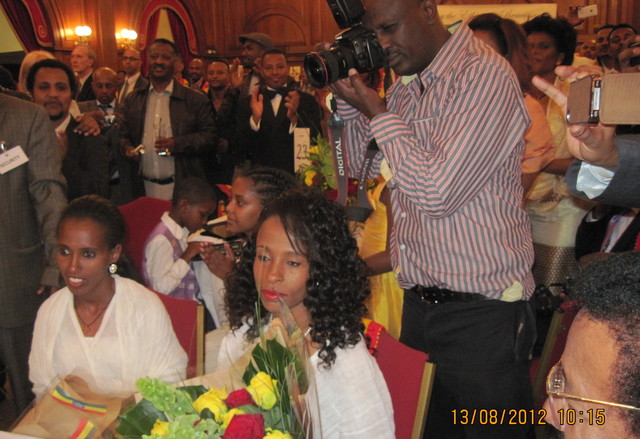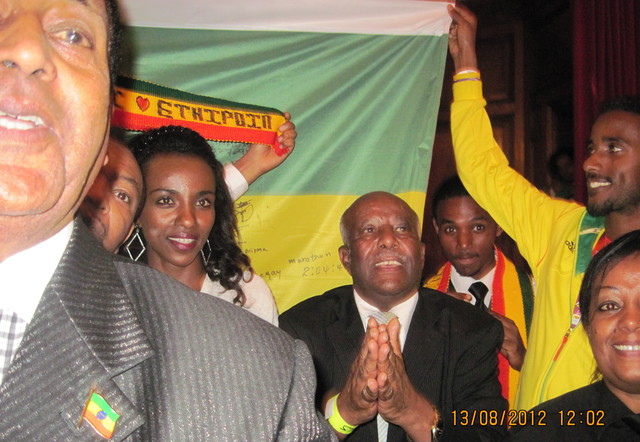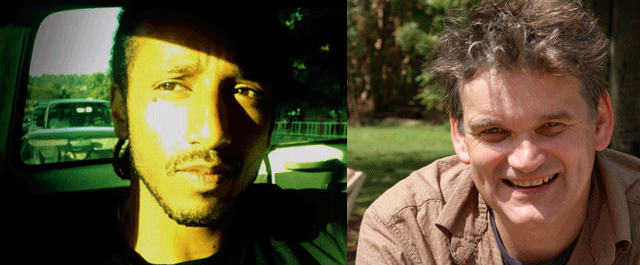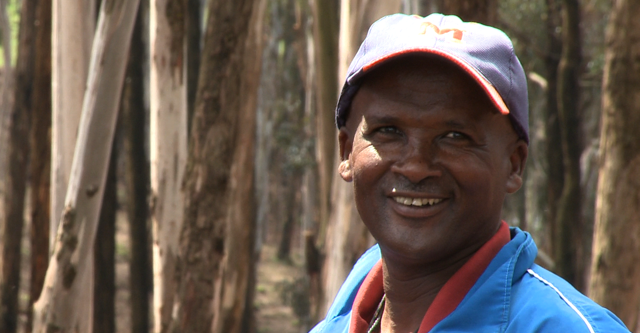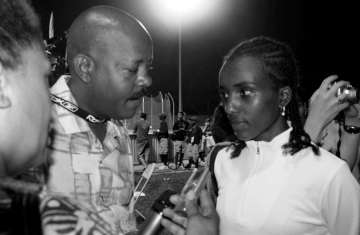Tadias Magazine
By Sabrina Yohannes
Published: Wednesday, August 28th, 2013
New York (TADIAS) – The world 10,000m and 5000m champions Tirunesh Dibaba and Meseret Defar will race for the first time in over a year at the IAAF Diamond League 5000 in Zurich on Thursday. A rare and much-anticipated clash between the two Olympic champions over both distances — and an opportunity for both to medal twice – failed to take place at the Moscow world championships this month due to the Ethiopian athletic federation’s preference that they each contest one event.
“If we had both raced twice, Ethiopia could have collected better medals,” said Meseret in an interview at the Moscow Ethiopian embassy some days after she and newcomer Almaz Ayana took gold and bronze in the 5000 there, and Tirunesh and teammate Belaynesh Oljira earned the same medals in the 10,000. “I complied with the request made of me, but my original intention was to contest both distances, and it’s the reason I ran a qualifying 10,000 in which I led for 20 laps.”
The 2004 and 2012 Olympic 5000 champion Meseret ran the year’s fastest 10,000m in June when seeking to make the world championships team.
In the Russian capital, the 2007 world champion Tirunesh regained the title ahead of Kenya’s Gladys Cherono, while the silver medal in the 5000 also went to a Kenyan, Mercy Cherono. Ahead of the championships when the 2008 double Olympic champion Tirunesh and Meseret were provisionally entered in both Moscow races, some athletics experts had speculated that Ethiopia could sweep the medals in the two distances.
“Yes, if we’d both run in the two events, I think we could have taken all the medals,” said Meseret. “Although the Kenyans could have come in between us, and perhaps they might have finished third and taken the bronze, but Ethiopia could definitely have taken gold and silver, I think.”
Ethiopia did sweep all six medals at the Helsinki world championships in 2005, where Tirunesh won both events and Meseret took 5000 silver.
“That could have happened, especially in the 5000 where all three of us are very strong,” said Meseret of the hypothetical Moscow 5000 team in which she would have been joined by Tirunesh and Almaz, who had run the year’s two fastest times. “We could have taken first through third.”
Both Tirunesh and Meseret said they were moved to consent to the federation’s request that they put aside their double medal hopes. “I pulled out of the [5000] race because the federation asked that both of us race one event each so that emerging athletes could gain experience, and Meseret and I agreed,” said Tirunesh after her victory.
“The younger athletes got the opportunity, and they ran very well and I’m so happy about this,” said Meseret.
The federation was content with the four medals earned in the two events and with its strategy to guarantee the most important objectives in each race. “It’s not so much a matter of medals, but a matter of golds,” said the organization’s technical director Dube Jillo in an interview in Moscow after the conclusion of the championships. “If we get the golds and these bronze medals, it’s sufficient. But our goal is developing athletes. The athletes who will tomorrow replace Tirunesh [and Meseret] have run here now, and it’s a matter of achieving that.”
“The maximum number of golds available in each race is one,” he continued. “What would be the purpose of having both do double duty? So we let each one concentrate on one event and run. Secondly, we have young athletes who are capable of medaling and we know this from their training and their competitions. And even if they don’t medal and we get just two golds, … we need to provide them with global championships experience.”
Of the young athletes who made the teams as a result, Ababel Yeshaneh was ninth in the 10,000m and Buze Diriba placed an impressive fifth in the 5000. Buze and Tirunesh’s world indoor 1500m champion sister Genzebe join Meseret and Tirunesh in the Weltklasse race in Zurich on Thursday. The stacked field includes three Kenyan silver medalists — both of the Cheronos who medaled in Moscow and the 2009 and 2011 runner-up in the world championships 5000, Sylvia Kibet – as well as their compatriot Viola Kibiwot who was fourth in Moscow.
The title match-up however is between Meseret and Tirunesh, who are one another’s fierce rivals on the track and last raced regularly in the 2006 IAAF Golden League which preceded the current Diamond league series of competitions. Sparks flew on the track as the pair traded victories and most notably, Meseret won the last race in the series where Tirunesh was headed for a jackpot prize for multiple victories and had to settle for a lesser award as a result.
They last met in the 2012 London Olympic 5000, where Meseret snatched victory in the final lap from Tirunesh, who was attempting the golden distance double, but had to settle for a 5000 bronze to go with her 10,000 gold. Prior to that, the two raced at the New York Diamond League meet where Meseret was a late entrant and lost to her rival in a moderately-paced 5000, in which both were seeking to make the Olympic team.
“I’ve raced many times with Meseret,” said Tirunesh when a reporter at the press conference following the Moscow 10,000 questioned hers and Meseret’s not doubling up there, and he also asked if she feared Meseret over 5000. “She’s beaten me and I’ve beaten her. But this is the world championships and we are competing against the world.”
“There’s nothing for me to fear,” she added.
“I like to run with her,” said Meseret when asked at her Moscow post-race press conference about racing her rival in future. “She is the strongest athlete and my biggest competitor.”
The next such contest takes place at 8:13pm Zurich time and 2:13pm Eastern United States time on Thursday and decides the winner of the 2013 race for points in the Diamond League women’s 5000. Tirunesh enters the Zurich race slightly fresher than Meseret as her last race was the 25-lap run in Moscow on August 11. Meseret has since run two rounds of the Moscow 5000 and won a 3000 in Stockholm last Thursday in a world-leading time, and she currently leads the race for points by a small margin.
The two women are also scheduled to meet over the half-marathon distance at the Great North Run in England on September 15.
—
Join the conversation on Twitter and Facebook
